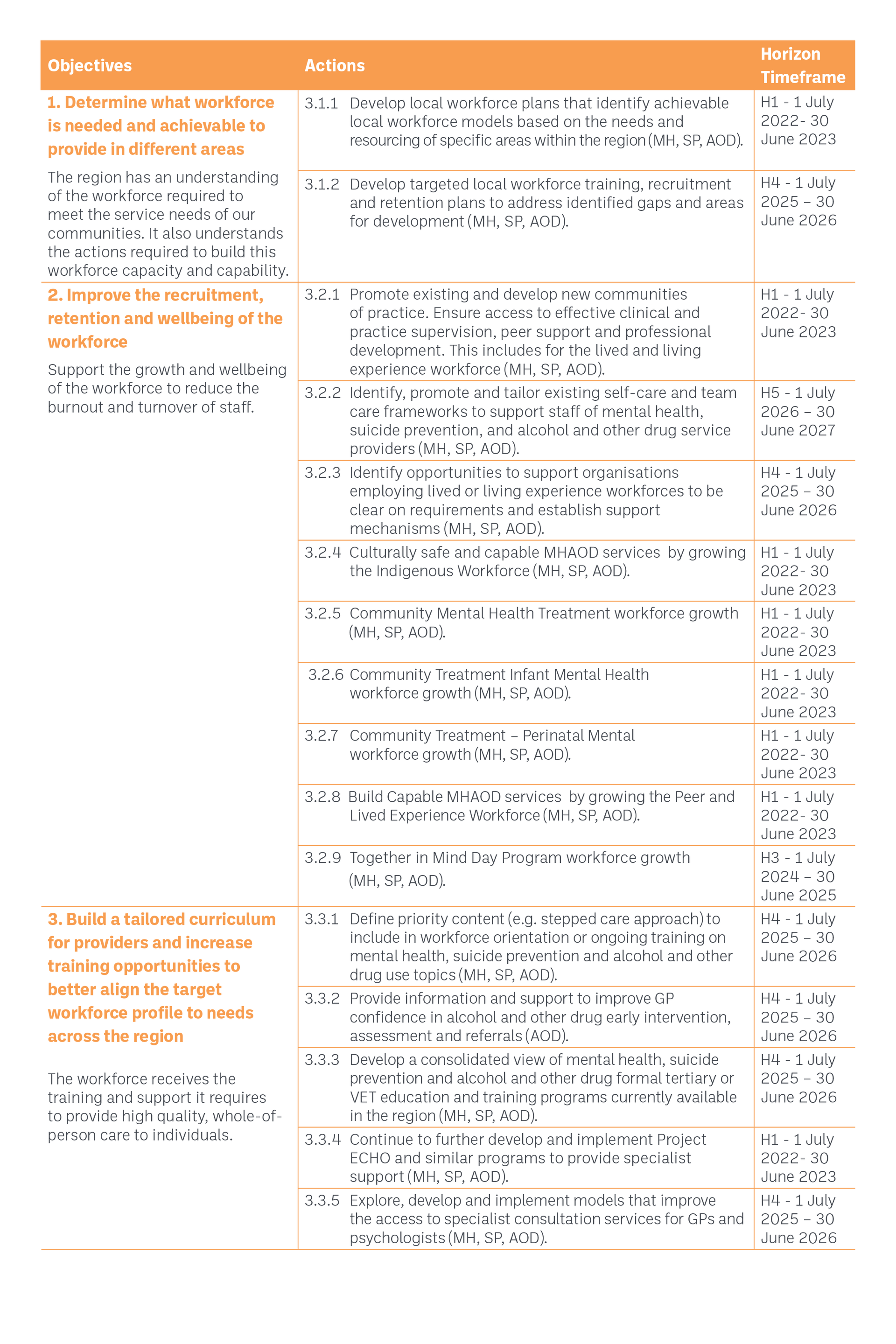Focus area 3
Workforce and support
Right person in the right place
Overview
The mental health, suicide prevention and alcohol and other drug treatment workforce is crucial to delivery of effective support.
There are a number of challenges currently affecting the workforce in our region, including:
- a lack of certain professions and clinicians
- difficulty recruiting and retaining a workforce with the required skills and capabilities
- providing appropriate training to staff
- addressing workforce stigma (the negative views or attitudes from people that staff may experience based on their work in mental health, suicide prevention and alcohol and other drug sectors)
- high levels of turnover, in some instances due to burnout.
While not unique to Darling Downs and West Moreton, these challenges are exacerbated by the regionality of some communities. Putting the ‘right person in the right place’ requires targeted action to attract, retain, train and support staff.
What we heard
Difficulty in recruiting and retaining staff in regional areas
Several individuals said that locum practitioners did not always meet their needs. For example, some locum GPs may be earlier in their careers and less experienced; and by their temporary nature do not have the opportunity to develop the meaningful relationships necessary to address mental health concerns. This means some areas may receive the services that are available, rather than the services that they need.
The MHSPAOD workforce faces stigma due to the nature of their work
Providers said that some members of their workforce face stigma for working in mental health, suicide prevention and alcohol and other drug treatment services. There are two main aspects to this stigma. First, some people stigmatise workers with the same stigma that exists for those individuals seeking MHSPAOD services. Second, workers in the MHSPAOD sectors often face additional cultural barriers to seek help for their own MHSPAOD-related concerns. This can limit the number of prospective people interested in a career in MHSPAOD support and can increase the likelihood of burnout.
Burnout is a common issue amongst the MHSPAOD workforce
Many service providers highlighted the drain on staff from working in a challenging environment which often results in burnout or skilled staff leaving the MHSPAOD sector. This problem indicates that staff may benefit from additional support during and outside of work.
Individuals indicated that peer workers and programs effectively provide support
Some people who access services have acknowledged the increasing availability and effectiveness of peer support programs.






